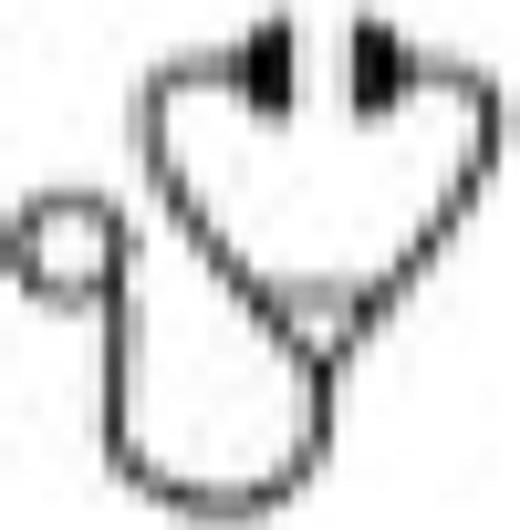Abstract

Introduction: in the last 10 years the number of tyrosine kinase inhibitors (TKI) used to treat patients with chronic myeloid leukemia (CML) significantly increased. The basic principle of therapy was also changed, now it is aimed at early induction of deep response (ELN, NCCN). The treatment results in clinical practice may vary widely and depend on the effectiveness of the entire complex TKI, based on timely evaluation of residual leukemic clone.
Objective: To characterize the TKI treatment results and monitoring of residual leukemic clone in clinical practice in CML patients in the Russian Federation (RF).
Methods: The observational study "Russian registry of chronic myeloid leukemia management in routine clinical practice" (CSTI571ARU06 LLC) was launched in November 2011 by Novartis. Patients with Ph'+ CML were enrolled into study after signing the informed consent. Thus the study has a retrospective part (4626 patients) and prospective group of 1828 CML patients. By February 2015, the Registry contained information about 6466 patients from 110 centers of 80 regions of the RF. The annual increase of newly registered CML cases ranged from 493 to 694 people per year or 10-13% of the total number of patients included in the Registry on the treatment of CML in 2012- 2014. Characteristics of patients in the Registry: median duration of the disease was 71 months (from 0.2 to 343 months); median age at registration time and CML diagnosis was 49.5 years (range 2 - 94 years); male 43%. The biggest number of cases was diagnosing with patients aged 50-69 years old, which is 50% out of all the registered patients. It is important to note that the number of female patients aged 50 years old and older (39.1% in total, out of the overall number of CML cases) prevails the same male patients age group (25.6% of the cases). Chronic phase was in 93.6% of patients, accelerated phase and blast crisis- 5.6% and 0.6% cases, accordantly. Sokal risk group's ratio was 50%/31%/19% for low, intermediate and high risk, respectively.
Results: The data for the analysis were available for 5632 patients (93% of CML patients in the Registry). The 1st line TKI therapy was Imatinib (IM)- in 4908 of the 5632 patients (87%), including the advanced phases of CML; in 71 and 14 patients the 1st line treatment was nilotinib and dasatinib respectively(totally 1%). The percentage of patients receiving TKI-2 ranged from 10 to 35% in different regions of RF. In 2006, the diagnosis CML was confirmed by the data of karyological analysis only with 42% of the patients, but it should be pointed out that currently cytogenetic and/or molecular-based analysis has been conducted at least once with 99% of the patients. Thus, the data presented in Registry of CML treatment provides grounds to state that almost all the patients have had their diagnosis verified within routine clinical practice. The presented data demonstrate the amount of work done to obtain such results during the previous ten-year period. We evaluated cytogenetic monitoring (CyM)/molecular monitoring (MM) frequency during years 2013-2014. Two or more studies per year of cytogenetic CyM/MM were done only 20% of 40 patients per year (2320 persons); with 50% (2960 in 2013, 1203 in 2014) of patients CyM/MM was performed once; no studies have been done in 489 patients in 2013 and 3580 patients in 2014. There was a trend of increasing of molecular studies to evaluate minimal residual disease:1829 MM vs 491 CyM in 2013 and 1028 MM vs 179 CyM in 2014. The absence of optimal response (ELN2013) was observed in 887 patients on different TKIs: (759patients on IM: in 732 patients with the duration of IM therapy over 12months and in 27 patients-less than 12months. Change of treatment to 2nd line was performed in 639 (12%) patients. The death occurred in 373 (6.2%) patients, no data of the living status was in 50 (0.8%) cases. According to the Registry data, death due to the CML progression was in 99 cases (26%).
Conclusions: The observational study "Russian registry of chronic myeloid leukemia management in routine clinical practice" is the largest registry of hematological diseases in Russia, providing information about CML patients receiving TKI therapy more than 10 years. The introduction of information technologies to analyze a large amount of data is an essential component to improve the quality of medical care. The evaluation of therapy results can give objective information of the TKI 1st and 2nd generations requirement.
Turkina:Pfizer: Consultancy; Bristol Myers Squibb: Consultancy; Novartis Pharma: Consultancy. Golenkov:Novartis: Consultancy.
Author notes
Asterisk with author names denotes non-ASH members.

This icon denotes a clinically relevant abstract

This feature is available to Subscribers Only
Sign In or Create an Account Close Modal